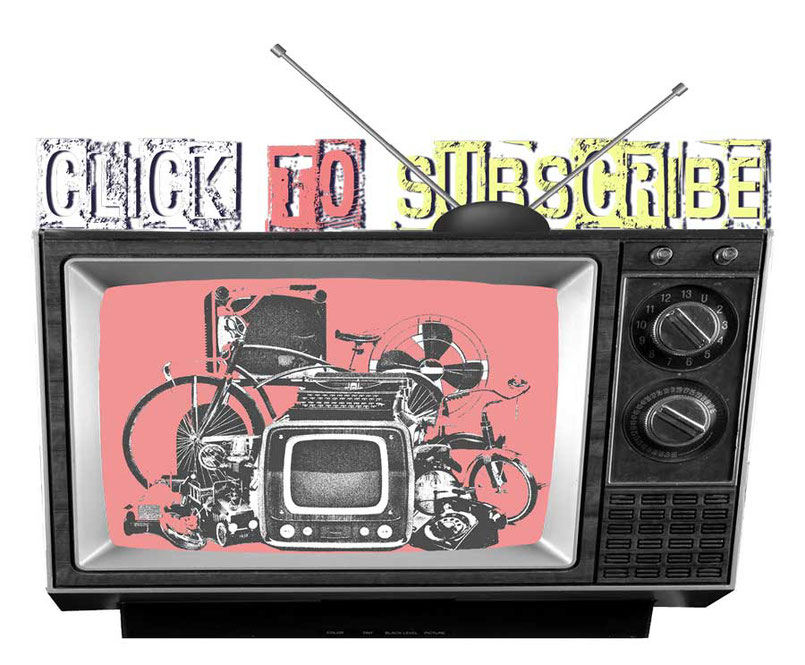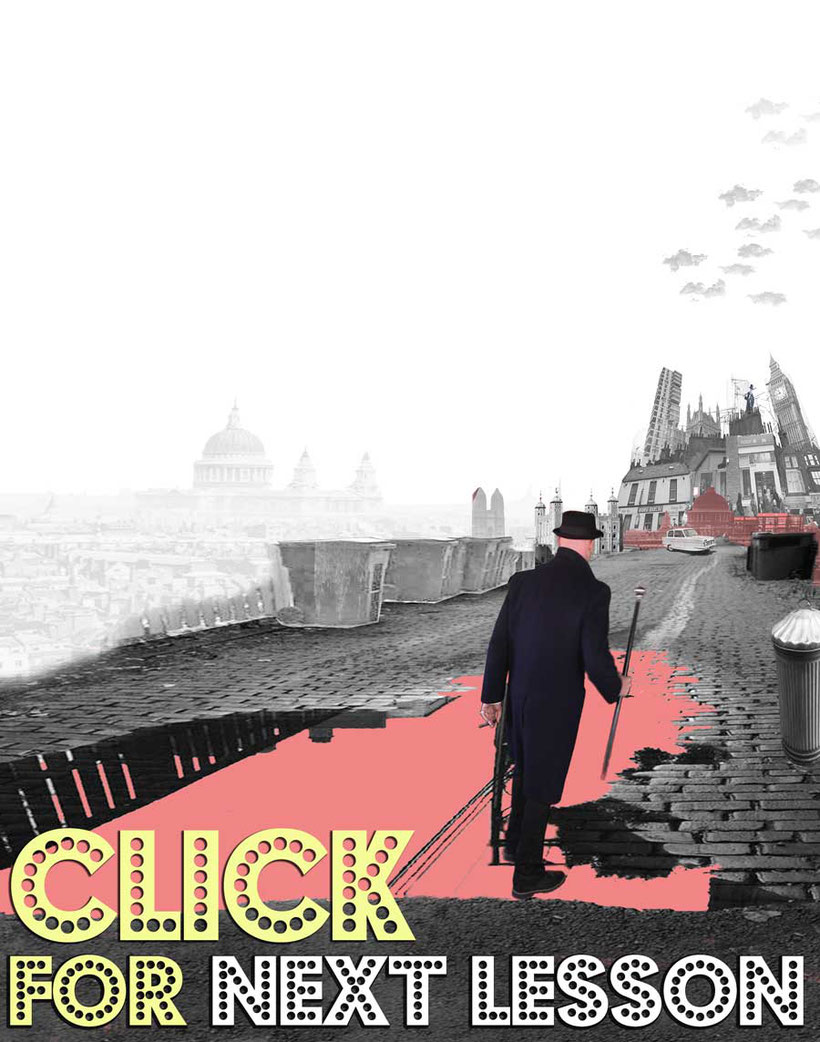
LEARN real ENGLISH LANGUAGE & CULTURE - LESSON 13
In Lesson 13 you will learn how to use verbs for necessity & obligation.
We will explain in detail how to use 'Used to'.
After we explain how to use the adjectives with -ING and -EDendings.
Finally students will practice with communication activities, quizzes and games.
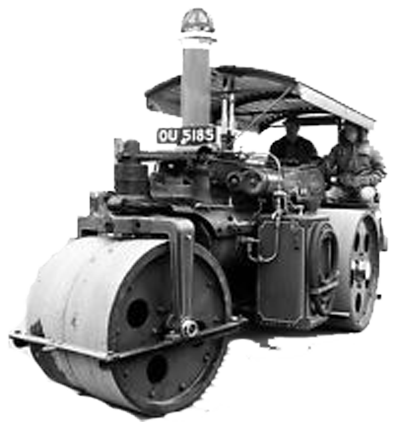
Photo of British culture: vintage British steamroller

Zak Washington, the corrupt English teacher, is too lazy to work at the language school, so he is taking his group of students to visit a ‘cultural’ place of interest. Today we are going to…..
THE JUMBLE SALE
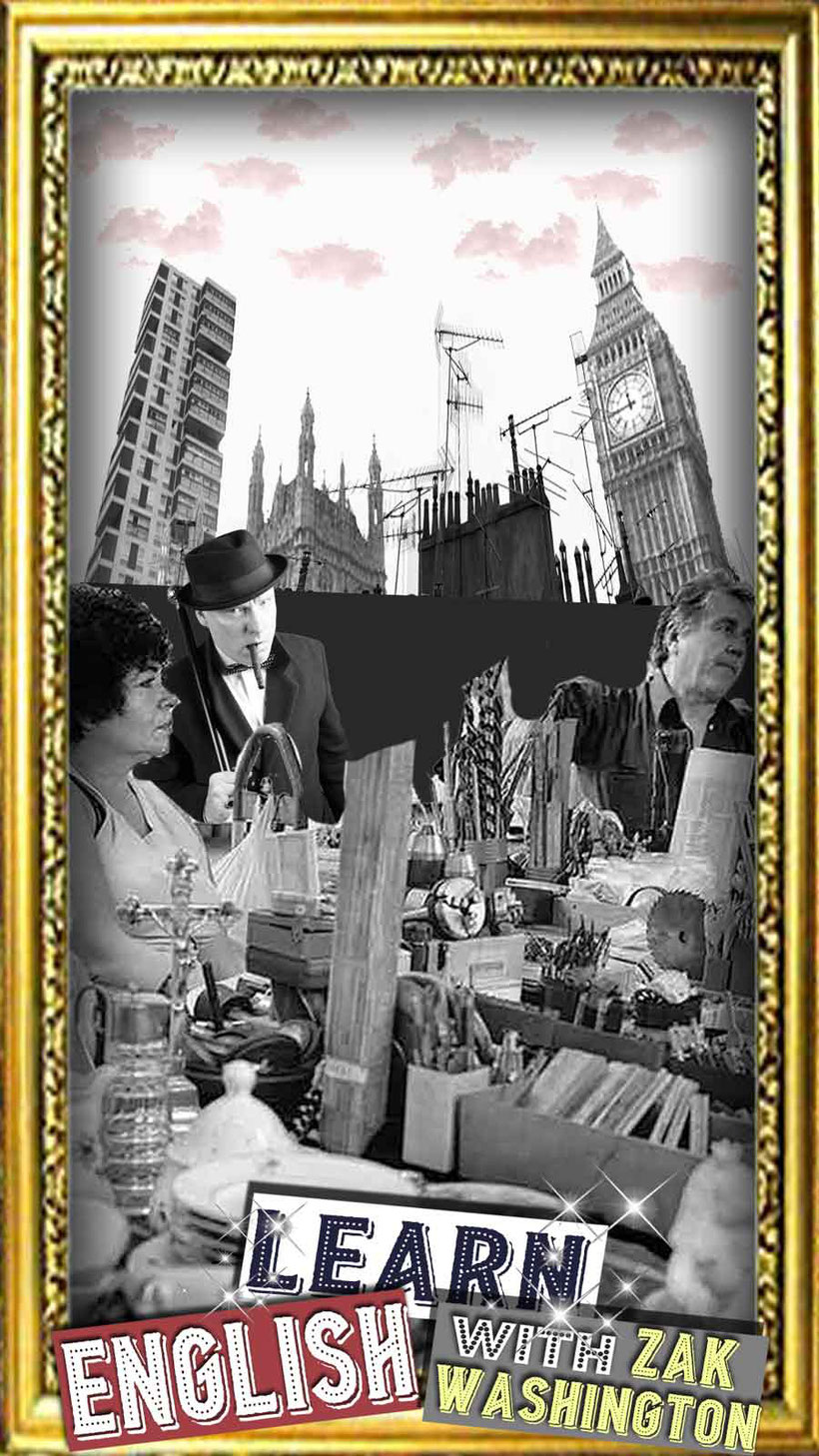
ENGLISH LANGUAGE STUDENT CONVERSATION JUMBLE SALES

ASPECTS OF BRITISH CULTURE JUMBLE SALES
What is a jumble sale?
Where are they held?
What could you buy there?
Who organises them?
Where does the money go?
(If you don’t know, guess! Don’t forget that you must speak at every available moment. That irritating student in the class is talking more, and thus, is learning more than you. Be competitive! Talk!)
Where do people go in your country to buy second hand things?
In Britain and the US there is an enormous second hand market. Yet in some European countries people seem to not like the idea of anything second hand. Why not?
Is this caused by snobbery?
What do people do with old things in your country when they have finished with them?
EXPLAIN THE DIFFERENCE (Or look it up online.)
CAR BOOT SALE / MARKET / GARAGE SALE / FLEA MARKET / FIRE SALE / YARD SALE / AUCTION / BAZAAR / STAND
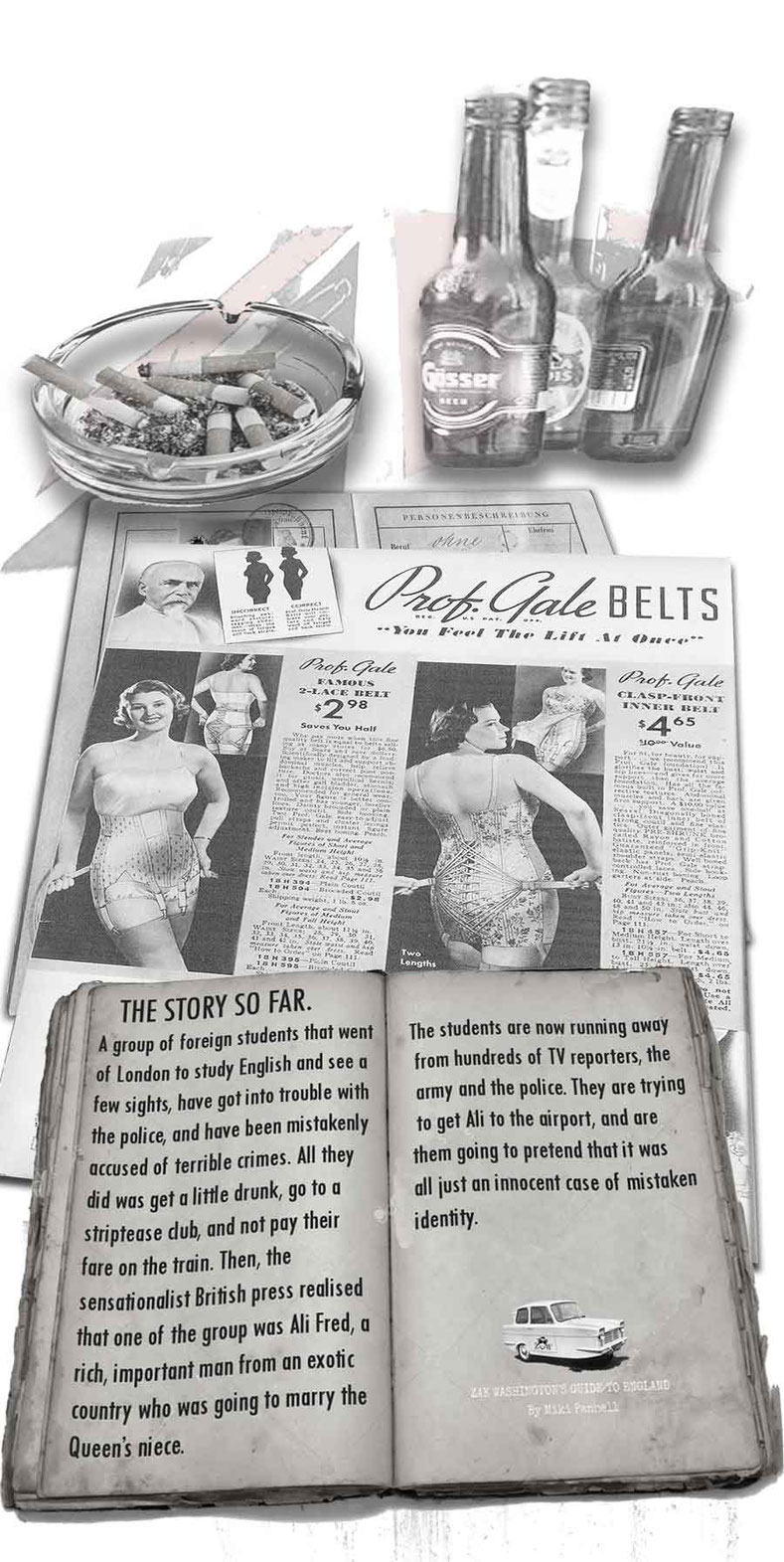


CHAPTER 13 SONG 1
ZAK WASHINGTON: A very good afternoon to you students!
MARIA: Where are we going today?
AHMET: We are going to the jumble sale. The police, the army, the London Transport Authorities, MI5, the KGB, the BBC and just about everybody in the world, is chasing[1] after us. We have got to escape. We’ve got to get Ali Fred to the airport and back to his country without anybody noticing. We need to go and buy some typical English clothes to disguise[2] ourselves.
ZAK WASHINGTON: Here we are at the jumble sale.
GIOVANNI: (talking to an old lady who is working on the door collecting money.) How much does it cost to get in?
OLD LADY: That’ll be 20p… cash.
ZAK WASHINGTON: Here we are inside a long church hall.
ANOTHER LADY: Excuse me. There’s a queue here!
ZAK WASHINGTON: At the far end there is a stage that is probably used for concerts…
LADY: What are you trying to do? There’s a queue here. Get to the back.
ZAK WASHINGTON: It has two small flights of stairs on either side.
LADY: No you don’t! You’re not pushing in.
ZAK WASHINGTON: At each side of the stage stand hang two huge red curtains.
LADY: Get to the back of the bloody queue.
ZAK WASHINGTON: There is an emergency exit on the left.
LADY: I’ll be giving you a good kick in your emergency exit, if you don’t get to the back of the queue.
ZAK WASHINGTON: On the wall at the far end of the hall, behind the stage, is a sign that says ‘Hornsey Boy Scout’s Annual Jumble Sale. Underneath someone has written some graffiti that says, ‘Hornsey Scouts are big sissies.’ All the best things on sale have been put on the stage. There is a small black and white television with a price tag of £3. A punk rocker with an orange Mohican hairstyle is fighting with an eighty year-old-woman over who saw the television first…
EIGHTY-YEAR-OLD WOMAN. Get off that’s my television. That’s mine!!!
ZAK WASHINGTON: …the old lady is winning the fight. In her hand is a black handbag that she is hitting him with. The handbag has a price tag that says 50p. Also on the stage is an old record player from the 1960s, a pair of skis, a skateboard and an old typewriter. There is a plastic duck that you can use in the bath. In the middle of the hall there are six tables in a rectangular shape. One at each end, a space in the middle and four on either side. On the tables are piled up an enormous amount of clothes. People are going crazy like wild animals trying to find the best things. They are picking things up and throwing them over their shoulders. There is a dirty pullover flying through the air! To the left of the hall is a kitchen. There is a hatch that is open. There is an old lady with a blue rinse pouring hot tea into plastic cups.
BLUE RINSE TEA LADY: Come and get your tea 10p!
ZAK: There is a sign that says ‘Tea 10p.’
BLUE RINSE TEA LADY: I just said that.
ZAK: Homemade buns 15p.
BLUE RINSE TEA LADY: Come and get your homemade buns 15…. Shut up, will you?
ZAK: Orange squash 5p.
BLUE RINSE TEA LADY: Are you selling them or am I?
ZAK: In front of the counter there are some tiny tables and chairs that have been borrowed from the local primary school. The adults are sat on the chairs, while their children are arguing and fighting.
[1] To chase (after) to follow with the intention or catching. ‘The police chased the naked streaker across the football pitch, before being caught. This was difficult because, in spite of being naked, she was a very good runner.’
[2] To disguise. Disguise (noun) to dress up in order to look like somebody else, and hide your original identity. ‘We are going to the party disguised as New York cops, nobody will recognise us.’ ‘We got the disguises from a fancy-dress shop.’

What are these modal verbs for obligation that the students keep using?
Discuss the grammar of the following: Got to. Need to.
What are their positive, negative and interrogative forms?
What are the contracted forms?
Remember that ‘need to’ has two forms in the negative and interrogative.
What are they?
What were the other forms of modal verbs that express obligation that we studied in chapter six?
How do these structures compare to those?
Which are the strongest?
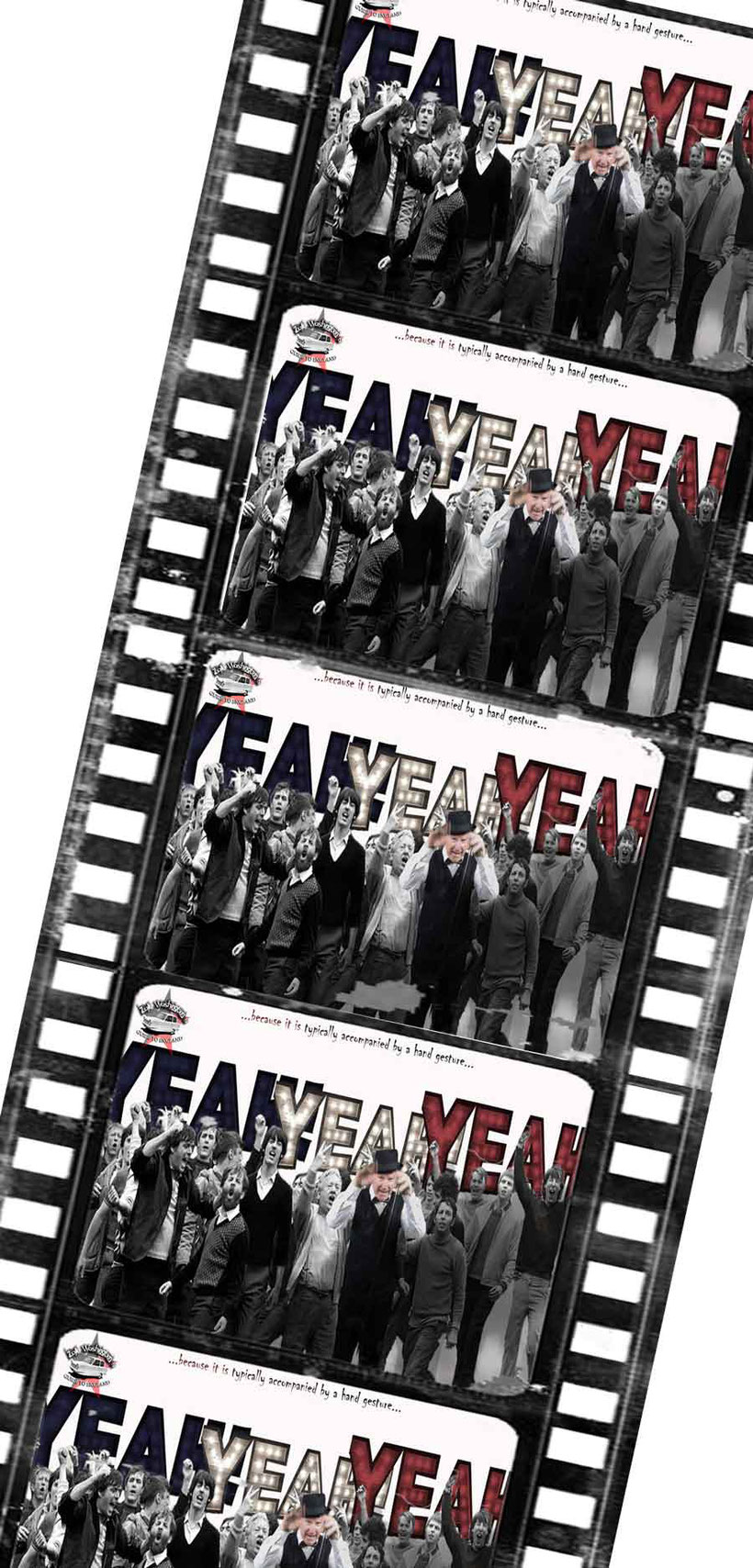

Now look at the dialogue between two typical English people. Transform their sentences, changing the idea to include one of these modal verbs. Got to or need to. A lot of these sentences will need complete restructuring.
TYPICAL ENGLISHPERSON ONE: ‘It’s essential in my opinion to bath regularly.’
TYPICAL ENGLISHPERSON TWO: ‘Is it necessary for me to take a bath? I’ve only just had one, about three months ago.’
TYPICAL ENGLISHPERSON ONE: ‘No, I don’t think it’ll be necessary. What about me? Is it important for me to take a shower. I haven’t had one in five months.’
TYPICAL ENGLISHPERSON TWO: ‘I don’t want to be the one to tell you, but it is extremely important that you bath yourself soon. You smell[1] like I look!
TYPICAL ENGLISHPERSON ONE: ‘That bad! Huh? I really must start to think about personal hygiene. It’s just that when it’s winter, and it’s cold, it’s not as necessary to worry about smelling.’
TYPICAL ENGLISHPERSON TWO: ‘It’s just that it is important for you to get used to the water in the public fountain. Why is it necessary that it is always so cold?’
TYPICAL ENGLISHPERSON ONE: ‘These people take never take homeless people into consideration. It is necessary that the government does something now. Hot water for all, I say!’
TYPICAL ENGLISHPERSON TWO: ‘Yes Mary, you’re absolutely right!’
TYPICAL ENGLISHPERSON ONE: ‘C’mon Doris, it is important that we clean ourselves up, we might meet a couple of millionaires today!’
[1] To smell, smelly (adj.) to give off a bad or unpleasant odour, unless there is a positive adjective placed next to the word. ‘You smell great!’ (Negative.) ‘You smell!’ (Time for a bath.) Things could be worse! You could stink, or you could even reek, both of which verbs are stronger. The nouns are a smell, which is not as bad as a stench. A pong is a synonym of a smell although it has a slightly lighter, more comical sound.
COMMUNICATION AND SPEAKING PRACTICE DISCUSSION ABOUT MEN AND WOMEN
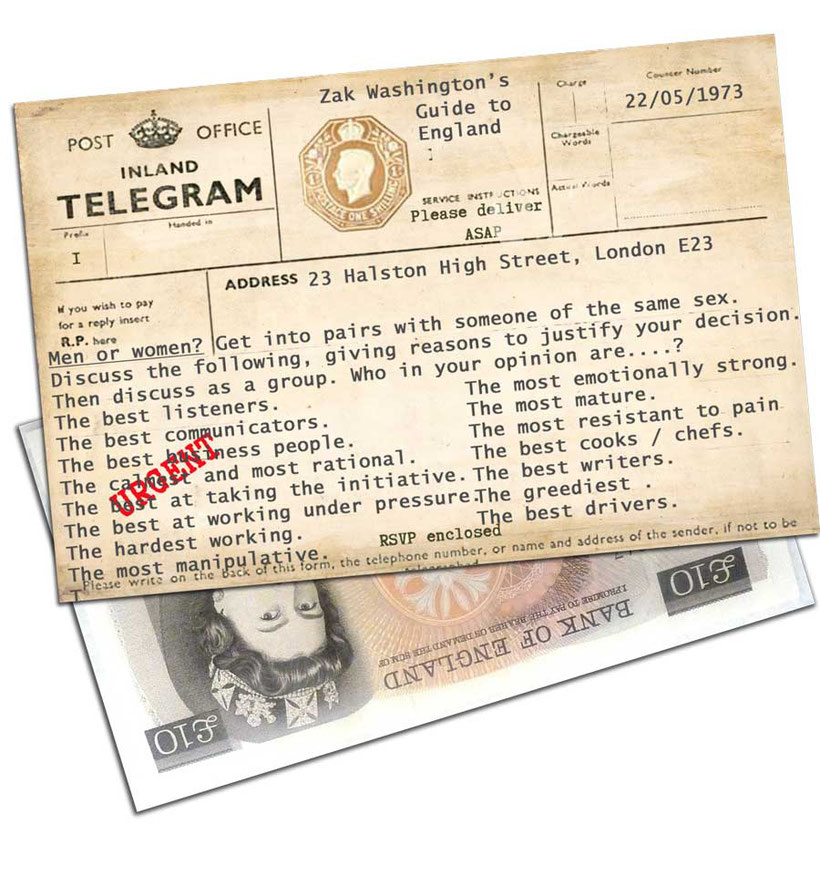
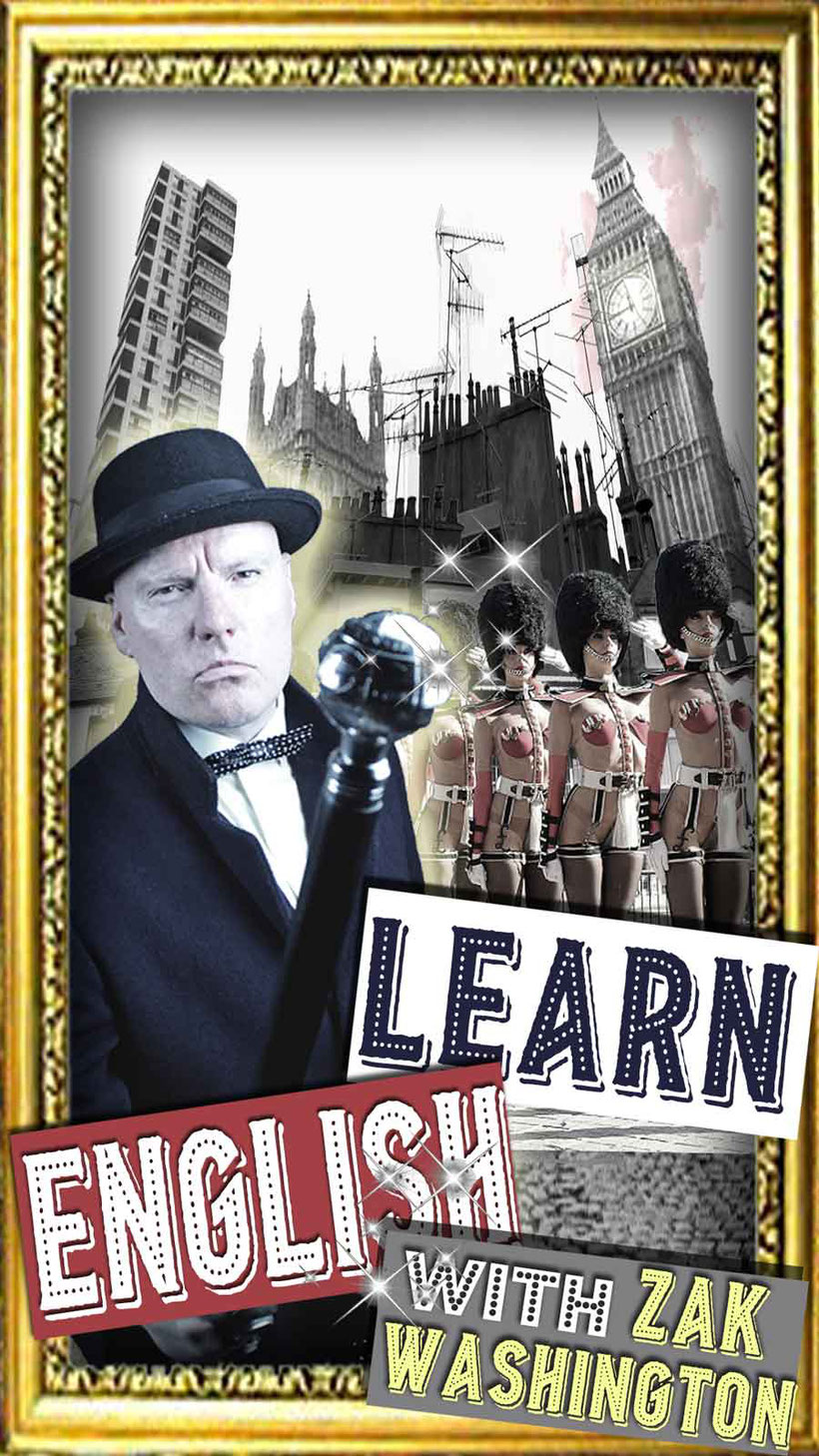
COMMUNICATION AND SPEAKING PRACTICE DISCUSSION ABOUT GENDER
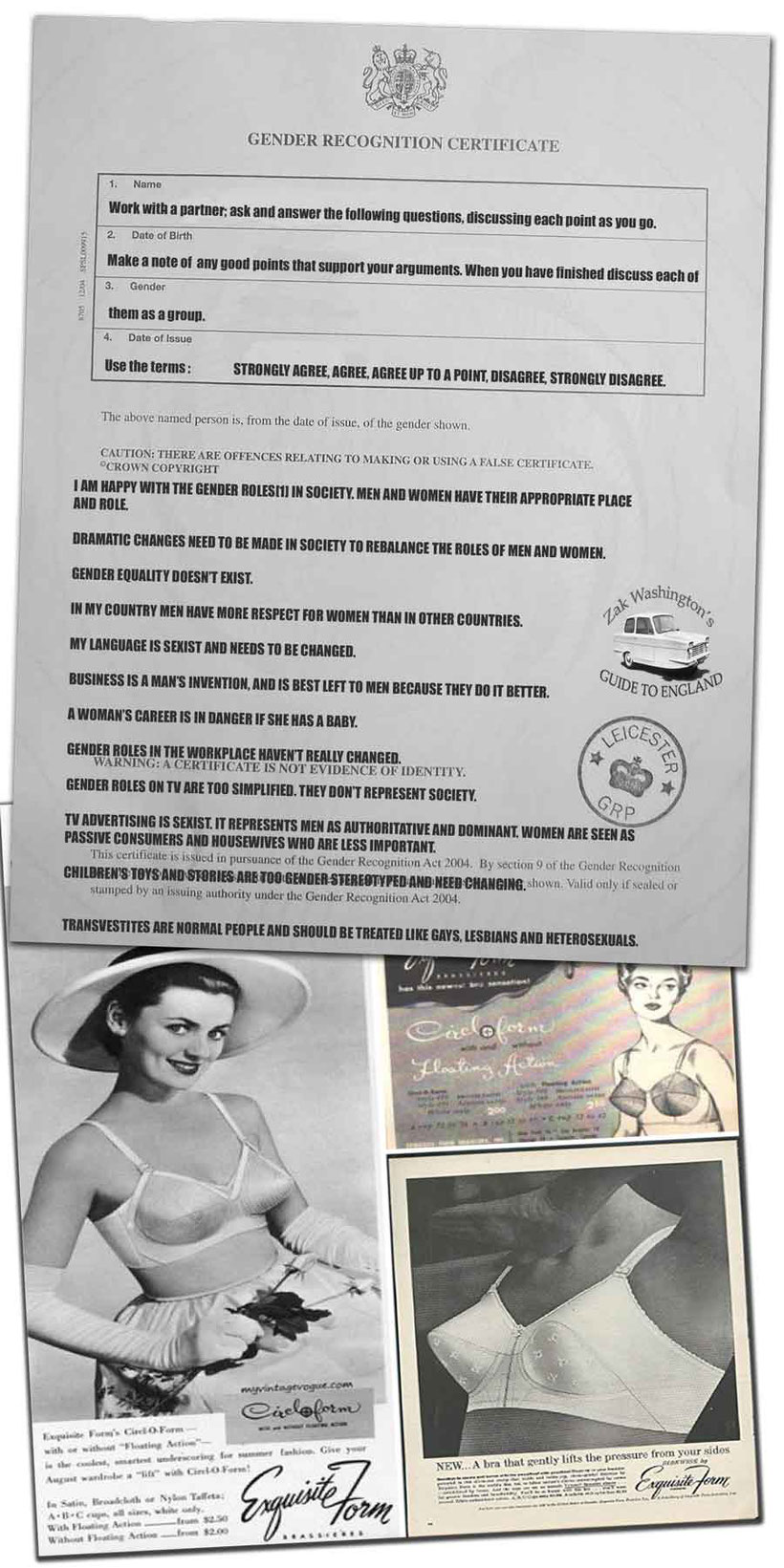

Choose the correct word from the following list. When you have finished, give and explanation why the others are incorrect.
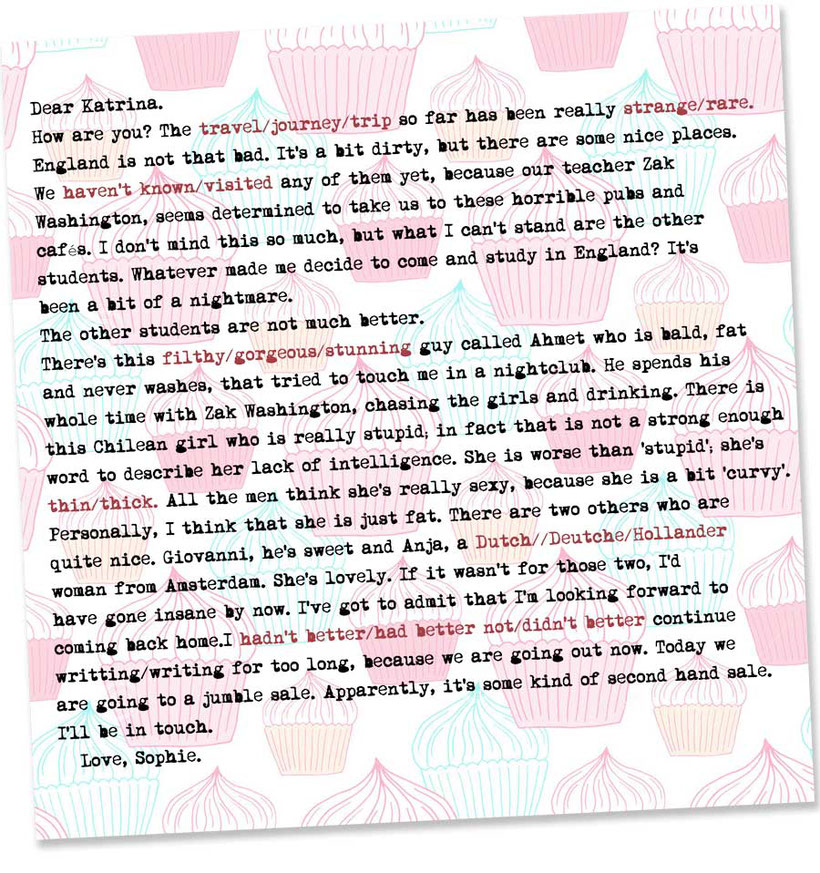
GRAMMAR PRACTICE HOW TO TALK ABOUT THE PAST

In chapter three we studied the very complicated structures USED TO + GERUND and USED TO + INFINITIVE together.
As already mentioned, it is absolutely essential to not get the gerund and infinitive mixed up, as the meanings change completely.
What was the difference in meaning of USED TO with the gerund and the infinitive?
You will be given different situations.
Again, you must get together with a partner and ask and answer questions about each situation. This should be done orally.
Example
You've just quit smoking
1.What did you use to do/be? I used to smoke 20 a day. I used to smell of tabacco.
2.What didn’t you use to do? I didn’t use to do much exercise.
3 What are you getting used to doing? I’m getting used to breathing fresh air.
4.What are you used to doing? I'm used to doing more sport.
You’ve moved house.
1.Where did you used to live? I used to...
2.Where didn't you used to live? I didn’t use to...
3 What are you getting used to doing? I’m getting used to...
4.What are you used to doing? I’m used to... etc
- You’ve left your partner and get divorced.
- You’ve changed your job.
- You’ve lost a lot of weight.
- You've gone to live in England
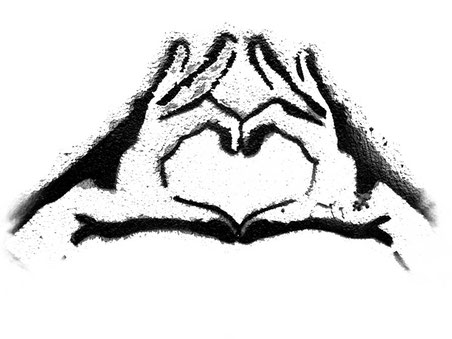
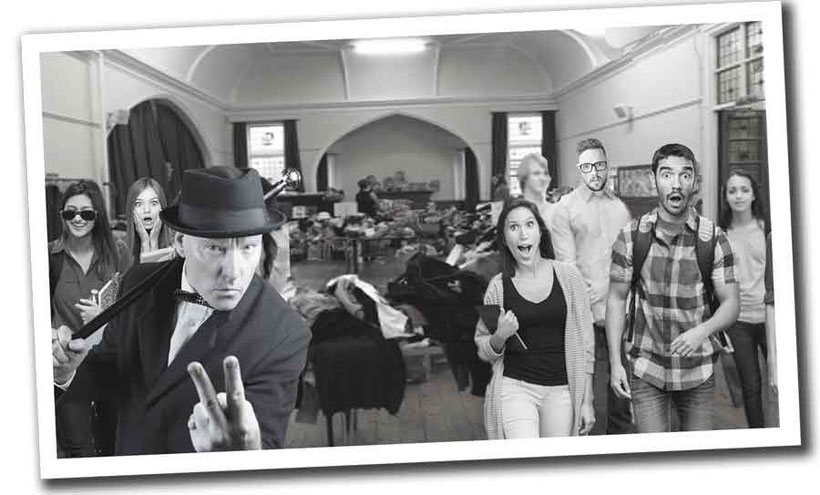
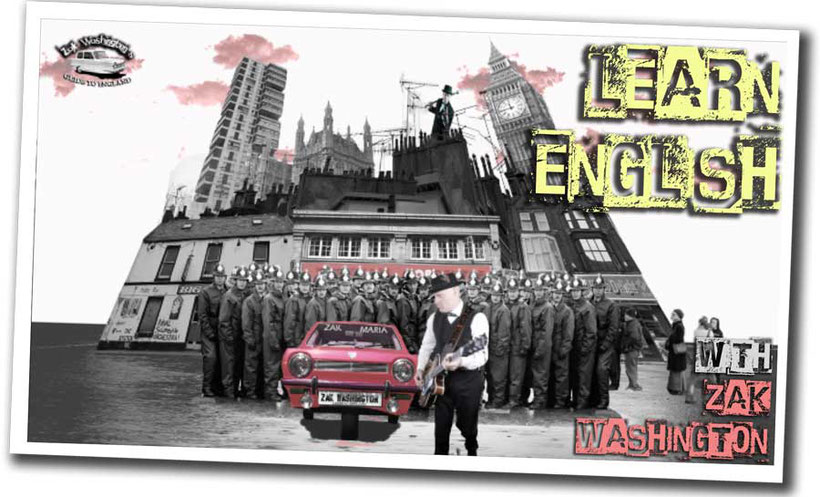
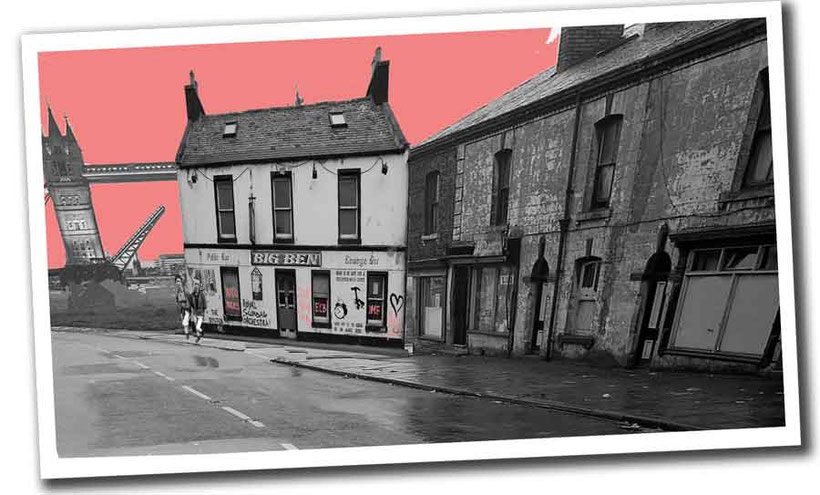

13.6 GRAMMAR ADJECTIVES ENDING IN -ED AND -ING
What is the difference between the following sentences?
‘Giovanni is interested,’ and ‘Giovanni is interesting’?
Discuss the grammar as a group.
One is active and one is passive. Which is which?
Which ending can only refer to people?
Complete the text below using adjectives that end in –ED or –ING.
shocked/shocking
interested/interesting
frightened/frightening
bored/boring
embarrassed/embarrassing
liberated/liberating
amused/amusing
appalled/appalling
disturbed/disturbing
tired/tiring
disappointed/disappointing
annoyed/annoying
exhausted/exhausting
excited/exciting
humiliated/humiliating
distressed/distressing
disgusted/disgusting
thrilled/thrilling


Complete the phrase with an ADJECTIVE WITH _ED OR _ING
MARIA: Great! This jumble sale looks like it’s going to be ____________. I love new things! Things that are different! It always makes me feel so _______________!
SOPHIE: I couldn’t agree with you less. I find it ______________ that people can go to a place that’s full of dirty old clothes and horrible old shoes. It makes me feel _______________.
MARIA: Why aren’t you ________________ in doing anything new and ____________________? All you ever do is moan and complain. Are you feeling _______________?
SOPHIE: I am a little _________________ about the whole trip to London. I thought it would be much more ‘normal’. I thought that there would be typical tourists, who were _________________ in doing typical things. I find the whole situation quite _________________. The authorities are chasing after us and I’m very ________________. What if my parents find out? It will be totally _______________. What will happen if I get deported? Imagine the shame. That will be the most _______________ experience of my life.
MARIA: But don’t you find all the action and the excitement very ______________________? There is something almost sexy about being chased by so many people. It makes me feel really free …….really ________________. Like in that film Thelma and Louise!
SOPHIE: I don’t agree with you. So little sleep, and so much going out, drinking and excitement. This has been an ______________ experience. I feel totally ______________. Then there are these weird[1] characters! It’s all starting to resemble a circus freak[2] show. These people are not normal. They are like characters out of a nightmare. They are __________________ and make me feel sick. Don’t you find them ____________________?
MARIA: In London everybody is a little crazy! It’s great. I think it’s all completely _______________. I get _____________ whenever I meet one of these ____________________ characters.
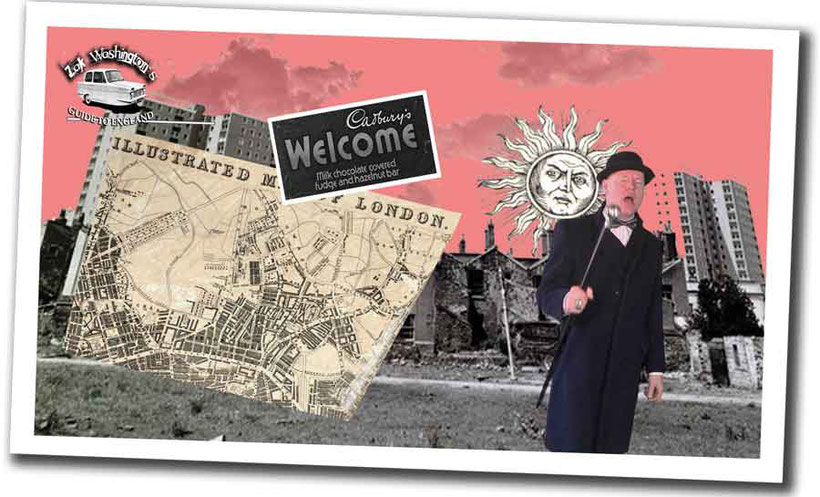

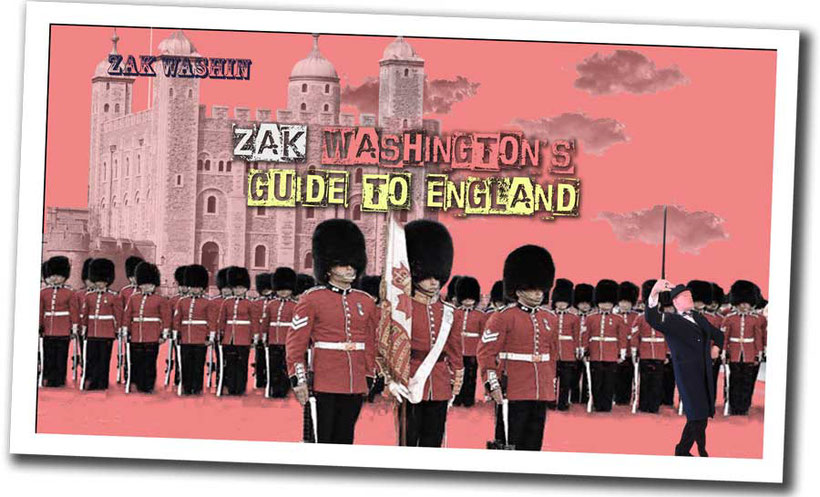

Get into pairs and read the following text. As you read it, put the vocabulary into one of the relevant sections below.
Items of clothing used by men. Example: blazer...
Items of clothing used by women. stockings...
Parts of clothing buttons...
Accessories and extras for decoration badge...
Adjectives to describe material and patterns. leather...
Colours used to describe clothing purple...
(Fifteen minutes later the group of students and Zak Washington have finished shopping at the jumble sale, and are completely dressed up!)
Ahmet is dressed as a British airman from the Second World War, in an old wool-lined leather jacket with a large collar and a long zip. He has also found a pair of dark-brown knee-high boots, which match very well with his outfit. He is also wearing a white scarf, goggles[1], and a maroon woollen hat with long earflaps.
Maria looks more beautiful than ever. She is dressed in a sky-blue nurse’s dress, a tight navy-blue cardigan, and black fishnet stockings[2] that are driving Zak Washington and Ahmet crazy. She has found an old, pearl necklace in the bric-a-brac section, and is wearing it around her neck. On her head is a turquoise beret.
Francesca has found an entire wardrobe full of lady’s clothes to take back to Paris. At the moment she is wearing a black plastic miniskirt with a slit[3] up the front, orange tights[4], a purple and white flowered long-sleeved satin shirt, covered with a multicoloured tank-top. She has ankle-high pointed boots with laces. She is also wearing a pair of plastic bracelets. Her girlfriend will be very pleased!
Anja is dressed as a typical upper-class old man from the yacht club, in a blue blazer with gold buttons and a badge on the pocket. She is also wearing a white peaked sailor’s cap, a blue and white striped shirt, white flared trousers, a pipe, a monocle, and canvas sailing shoes. Ship ahoy!
Giovanni is dressed as a building site worker with a pair of orange dungarees, a spanner[5] in his trouser pocket, a white hard hat, a black string vest[6] and steel-toe capped boots. He has also found a fake[7] gold medallion to go around his neck.
Sophie is wearing a black fake fur coat, a crimson strapless silk evening dress, and burgundy stiletto shoes. She has a wide-brimmed cream coloured hat with plastic fruit on it, and looks as if she is about to go to an Ascot horse race. She looks stunning[8]!
Zak Washington is dressed up in top hat and tails, a yellow and black check cravat, a dark olive coloured waistcoat with a flowery pattern, and black patent leather shoes.
Ali, is dressed as an American tourist. He has a blue baseball cap with a large peak. He is wearing a Hawaiian shirt covered in palm trees, and beige shorts. He has a cigar and a chewing gum in his mouth. On his feet is a pair of white tennis socks, and brown sandals. Unfortunately, with his good looks, he has managed to attract the attention of a lot of people who have recognised him from this morning’s newspaper. Now that everyone is dressed as a ‘typical Englishmen[9]’. it’s time to go!
GLOSSARY
[1] Goggles (noun –always plural) eye protection for motorcyclists, pilots, machine workers etc.
[2] Stockings (noun) these come in pairs and cover a woman’s legs from the toes up to the mid-thigh (that’s the upper part of a leg). They are similar to tights ($ pantyhose) but don’t cover the legs completely.
[3] Slit (noun) to slit (verb) a long, thin cut in something. The slit is not always intentionally put there. If you have a tight pair of trousers, and you bend over to pick something up, and them they tear ....well, that is called a slit too. A hole is different. This is an opening, that is normally rounder in shape. Note also, that you cannot use the verb to break for material or clothing. This is only used for solid objects. (To break down for mechanical ones.) The appropriate verb for this would be to tear (tore, torn), which should rhyme with hair. Another useful synonym is to rip which is regular. Both can be used as nouns too; ‘Mum, I’ve fallen over and torn my new jeans, there’s a big rip in the knee!
[4] Tights (noun) to save your teacher the embarrassment of having to give you a demonstration of what these are; they are worn on women’s legs below a skirt, and cover everything from the waist to the toes. Boys, if you don’t understand, don’t ask the girls in class for a demonstration. Go home and look in your sister’s underwear drawer, or ask your mother!
[5] Spanner (noun) a type of tool for tightening bolts. You still don’t understand? Imagine that you were putting a wheel on a bicycle. The bolt is the round metal part that you take off first, and the spanner is the instrument for putting it on.
[6] Vest (noun) 1.(£) an item of underwear like a t-shirt that has no sleeves. 2.($) a waistcoat, or the part of a three-piece suit that accompanies a jacket and trousers.
[7] Fake (adj.) (noun) to fake (verb) not real or authentic, artificial, counterfeit. This is the adjective that you would use to describe clothing that is produced illegally using the name of another famous brand. Also diamonds, passports, paintings, documents, ID cards, etc that are not real should be referred to as fake. It also describes materials such as plastic or synthetic substances, which are made to look, like leather, or authentic materials: Fake crocodile skin shoes. You could possibly use it to describe a person who is pretending to be what they are not. This could also be an impostor although this is normally the criminal version. Americans have a wonderful adjective phoney, that describes fakeness, or anything not completely authentic, and could be used for any of the above. Bogus is another slang American adjective: Oh my God! She is such a phoney! She wears fake Levi’s, has a bogus Gucci bag, and her body parts are all fake too. She’s all silicon and plastic!
[8] Stunning (adj.) a very flattering way of describing a woman. It refers not only to beauty and physique, but also to elegance, smartness and style. Tell your English girlfriend that she is a stunner (noun), and you can’t go wrong! A very similar adjective is gorgeous; the difference is that stunning is probably less permanent, as it refers also to clothes. Gorgeous means very beautiful, but in a slightly more physical sense. Tell her she looks gorgeous too!
[9] Notice the use of Englishmen to describe the nationality. Many students mistakenly think that it is possible to talk about someone from England as an English. It isn’t. Following the same rule, a woman would be called an Englishwoman. If you want to generalize, you’d have to refer to the English. The same rule applies to many other nationalities. France, Frenchmen/Frenchwoman, the French. In cases like these, it is also possible to refer to a generalised mass of people as English people, or French people. The reason for this is probably political correctness –before Frenchmen meant men and women- now we tend to call them French people. This causes problems, as students think that this rule applies to every nationality. Students often say things like; American people always speak really loudly. This is not really correct, (well the part about them speaking loudly probably is!) or I should say, not really grammatically correct, as there is already a standard way of talking about their race. They need to be referred to as Americans, not American people. Similarly, Mexicans, Indians, Egyptians etc, that follow the same structure. Things can get pretty complicated as some countries have the same name for their language, and a different adjective to describe things from their country. Take, for example, Scotland. A person can be called a Scot, or a Scotsman. Not a Scottish. The plural should be Scotsmen, but again has been politically corrected to Scottish people. Scottish can only be used as an adjective to describe things from that country: Traditional Scottish customs. There is also the adjective Scotch, which is old-fashioned, and is only used in traditional expressions to describe things like Scotch whisky, and recipes like Scotch eggs. Thus, their languages are Scottish Gaelic or English. Scotsmen have it lucky in the English language! Some lesser known countries don’t get given a name for their individual people. There are, unfortunately, so many irregularities relating to countries, nationalities, adjectives for describing national nouns, and the differences between describing male/female/singular/plural, etc, that it is impossible to mention all. What you must do though, is learn by heart the vocabulary for different English speaking countries. Also, other countries come up commonly in conversation. Here is a basic guide to the most common of these, and also examples that are so irregular that they need to be learnt. There are many more, but most follow the same pattern as one of those below. Just remember that us native speakers often get confused too. Don’t hurt yourself!
Country Language/Adjective Nationality singular The race/Nationality plural.
England English (lang. & adj.) Englishman/woman The English/ Englishmen/ Englishwomen/ English people
Britain British (adj. Only) Briton/Brit (m/f) The British/Brits/Britons (again there is no difference made between masculine or feminine)
Ireland Irish (lang. & adj.) Irishman/Irishwoman The Irish/Irishmen/Irishwomen
Wales Welsh (lang. & adj.) Welshman/Welshwoman The Welsh/ Welshmen/ Welshwomen
Scotland Scottish (adj. only) Scotsman/Scotswoman/Scot Scotsmen./Scots.
Africa African (adj. only) African (m/f) Africans
America English (lang.) American (adj.) American (m/f) Americans
Denmark Danish (lang. & adj.) Dane (m/f) Danes
Germany German (lang. & adj.) German (m/f) Germans
Greece Greek (lang. & adj.) Greek (m/f) (The) Greeks
Holland Dutch (lang. & adj.) Dutchman/Dutchwoman The Dutch/Dutchmen
Japan Japanese (lang. & adj.) Japanese (m/f) The Japanese
Norway Norwegian (lang. & adj.) Norwegian (m/f) Norwegians
Poland Polish (lang. & adj.) Pole (m/f) (The) Poles
Spain Spanish (lang. & adj.) Spaniard (m/f ) Spaniards
Switzerland Swiss (adj. only) Swiss (m/f) (The) Swiss
Sweden Swedish (lang. & adj.) Swede (m/f) (The) Swedes
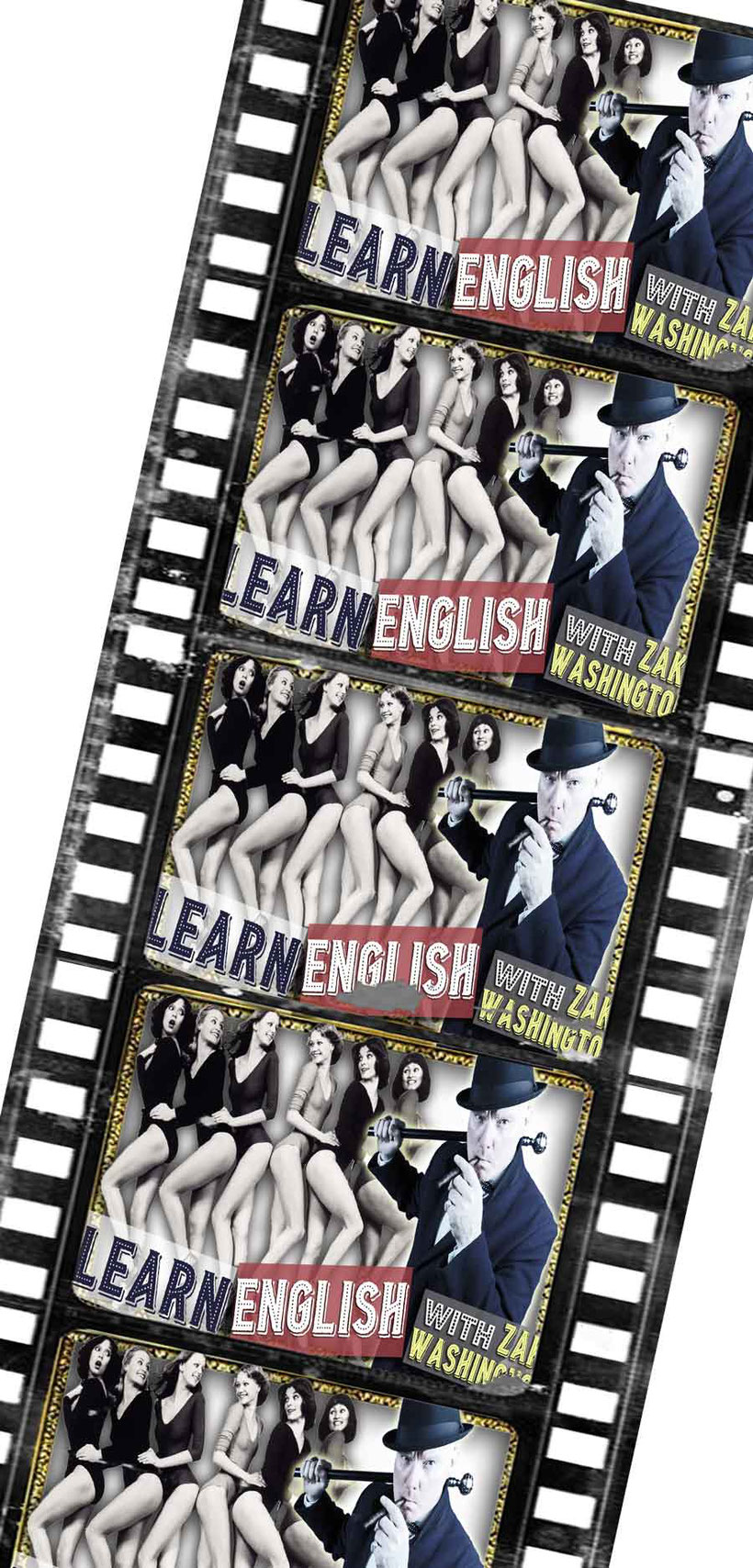
Take it in turns to come to the board and draw exactly what the students were wearing after leaving the jumble sale.

(The student who is dressed in a style that could most be described as English, will now come to the front and write all the following vocabulary on the board).
How do you think a typical Englishman dresses? Describe first the clothes that they wear. Then think of adjectives that you could use to describe their appearance. Now do the same for other nationalities. What about your own country? Who is the most stylish nation in Europe? Justify your answers. Who are the worst dressers in Europe? Explain. What are the stereotypical ways of dressing for different social classes in your country? Do you follow fashion? Is fashion important? What is the difference between a follower of fashion and a fashion victim? Have you ever had a period in which you broke the rules, and went against the current of fashion? What were the best and worst decades for fashion during the last fifty years?
ORGANIZE A JUMBLE SALE AT YOUR SCHOOL
Why not organise a jumble sale in your own language school? It doesn’t have to be very big. You could give the money that you make to charity, and it would be an excellent chance to get rid of some of the rubbish from your houses. It would also be good to put some of the vocabulary that you have learnt into practice. Discuss the idea with your teacher.

Surnames.
Like many other countries, Britain has a lot of surnames, which are nouns. Sometimes this has a historical origin. ‘Smith’, the most common surname means a type of tradesman, and still exists in occupations like, ‘blacksmith’, locksmith, etc. Look at this list of famous people below. Do you know what the second meaning is? Note that sometimes the spelling is different; but with the same pronunciation. (The correct spelling is in brackets.)
1. Elizabeth Taylor (Tailor)
2. Victor Mature
3. William Hurt
4. George Bush
5. Hugh Grant
6. James Fox
7. Brad Pitt (Pit)
8. Sharon Stone
9. Alexandra Pope
10.Bob Hope
11. Jeremy Irons
12. Terence Stamp
Fish and chip shops.
Explain the puns or word-plays.
1. Pete’s Plaice.
2. The In Plaice.
3. In Cod we Trust.
4. Cod Almighty.
5. Cod Father.
6. Fishy Business.
7. Fryer Tuck.
8. Fryday’s.
9. The Frying Scotsman.
10. Chip Inn.
Hairdresser’s.
Explain the puns or word-plays.
1. Hair Peace.
2. Curls and boys.
3. A Cut Above.
4. Urban Roots.
5. Head to Head.
6. Beyond the Fringe.
7. Curl Up and Dye.
8. Fringe Benefits.
9. Mane Attraction.
10. Hairlines.


